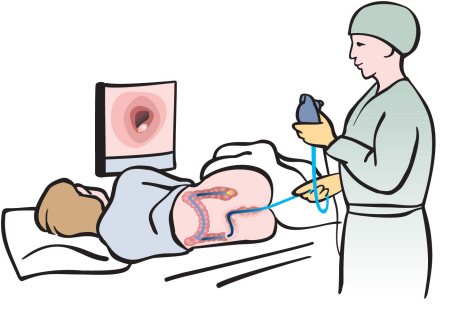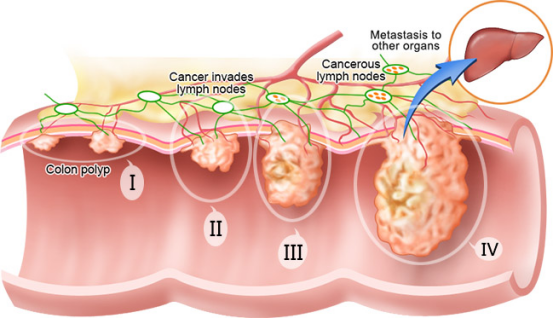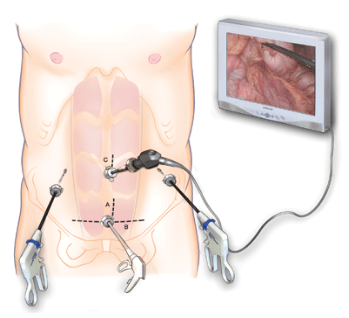Prepared by Dr. Sandip Kumar
Consultant of General and Colorectal Surgery
Gleneagles Medini Hospital
WHAT IS THE COLORECTAL CANCER?
Colorectal cancer — cancer of the colon and rectum — is the most common cancer in male and second most common amongst female in Malaysia. The incidence is highest among Chinese followed by Malays and Indians. The general population faces
a lifetime risk for developing the disease of about 5 percent, while someone whose family has a history of colorectal cancer has a 10 to 15 percent chance of developing the disease. The risk rises to over 50 percent in people with inflammatory bowel
disease and those whose family members harbour specific genetic mutations. Colorectal cancer strikes men and women with almost equal frequency. Survival of colorectal cancer is directly related to stage of cancer. Majority of Malaysian patients with
colorectal cancer present at advanced stage. Colorectal cancer is usually preventable, highly treatable, and often curable.
WHAT ARE THE SYMPTOMS?
Colorectal cancer is often a silent disease, developing with no symptoms at all. When symptoms do occur they may include the following:
- Blood in or on the stool
- Change in bowel habits
- Stools that are narrower than usual
- General stomach discomfort (bloating, fullness, and/or cramps)
- Vomiting
- Diarrhoea, constipation, or feeling that the bowel does not empty completely
- Weight loss for no apparent reason
- Constant tiredness, or new fatigue during activity that was previously tolerated
If you have any of these symptoms for more than two weeks, see your doctor or health professional immediately.
CAN IT BE PREVENTED?
Polyp-related colorectal cancer can be prevented. The disease develops from benign polyps (mushroom-like growths on the lining of the colon and rectum). Removing these polyps before they become cancerous may prevent cancer from developing.
WHO IS AT RISK?
The risk of developing colorectal cancer increases with age. All men and women aged 50 and older are at risk for developing colorectal cancer, and should be screened. Some people are at a higher risk and should be screened at an age younger than
45, including those with a personal or family history of inflammatory bowel disease; colorectal cancer or polyps; or ovarian, endometrial or breast cancer. Smoking, diabetes mellitus and obesity also increases the risk of colorectal cancer.
HOW DO I GET CHECKED FOR COLORECTAL CANCER?
Current screening methods include faecal occult blood testing (a simple chemical test that can detect hidden blood in the stool), colonoscopy (a visual examination of the entire colon) and digital rectal exam. Colonoscopy is the most common method
for diagnosing colorectal cancer. During colonoscopy, any abnormal area (such as a polyp) is checked for cancer cells. Often, the abnormal tissue can be removed entirely during colonoscopy. Currently, there are no reliable blood tests for diagnosing
colorectal cancer.

Colonoscopy is performed under sedation for diagnosis and prevention of colorectal cancer.
HOW IS COLORECTAL CANCER EVALUATED AND STAGED?
Once a diagnosis of colorectal cancer is made, your doctor needs to know the extent (clinical stage) of the disease to plan the best treatment. The stage is based on whether the tumor has invaded nearby tissues, whether the cancer has spread and,
if so, to what parts of the body. When colorectal cancer spreads outside the colon or rectum, cancer cells are often found in nearby lymph nodes. After spreading to the lymph nodes, colorectal cancer cells most often spread to the liver. Doctors
call this "distant" or metastatic disease.
In addition to taking a personal medical and family history and performing a physical exam, your doctor may order the following tests:
- Blood tests: These may include complete cell counts (to check for anemia), and CEA (carcinoembryonic antigen) level. CEA is produced by some colon cancers and is useful in detecting cancer recurrence.
- CT (computed tomography) scan, MRI (magnetic resonance imaging) and PET (positron emission tomography) scans; these are useful to determine whether cancer has spread to the liver, lungs, or other organs.
Stages of colorectal cancer

HOW IS COLORECTAL CANCER TREATED?
The mainstay of treatment is surgery, and the choice of treatment depends mainly on the location of the cancer and the stage of the disease. Colorectal cancer can be cured in up to 90 percent of people when it is discovered in its early stages. Chemotherapy,
or a combination of treatments may also be added. In advanced rectal cancer, radiation therapy is commonly used prior to surgery.
HOW IS SURGERY FOR COLORECTAL CANCER PERFORMED?
Surgical removal of the involved portion of the colon is the most common treatment for colorectal cancer, and it renders many patients disease-free without the need for additional therapy. Two main surgical approaches for treating colorectal cancer
exist:
- Laparoscopy: Colorectal cancer may be removed with the aid of a thin, lighted tube (a laparoscope) connected to a video screen. Three or four tiny cuts are made into your abdomen.
- Open surgery: The surgeon makes a larger incision on your abdomen to remove the tumor and part of the healthy colon or rectum.

Laparoscopic surgery has reduced post-operative pain and length of hospital stay after colorectal cancer surgery
CONCLUSION
Colorectal cancer is a common malignancy that causes a significant number of deaths. However, it is potentially preventable through screening and highly curable with surgery alone when diagnosed at an early stage. Modern chemotherapy continues to
improve survival for patients with more advanced stages. Colorectal cancer treatment often requires a team approach, including colorectal surgeons, oncologists, radiologists and pathologists. These doctors work with the patient to create the safest
and most effective therapy plan.


6fddc7d0-20f4-4624-b0a2-4e1017fc3b63.jpg?sfvrsn=404d305_6)
cdd280d3-fa9c-4039-b020-f062e04d69fe.jpg?sfvrsn=79f2453f_6)








